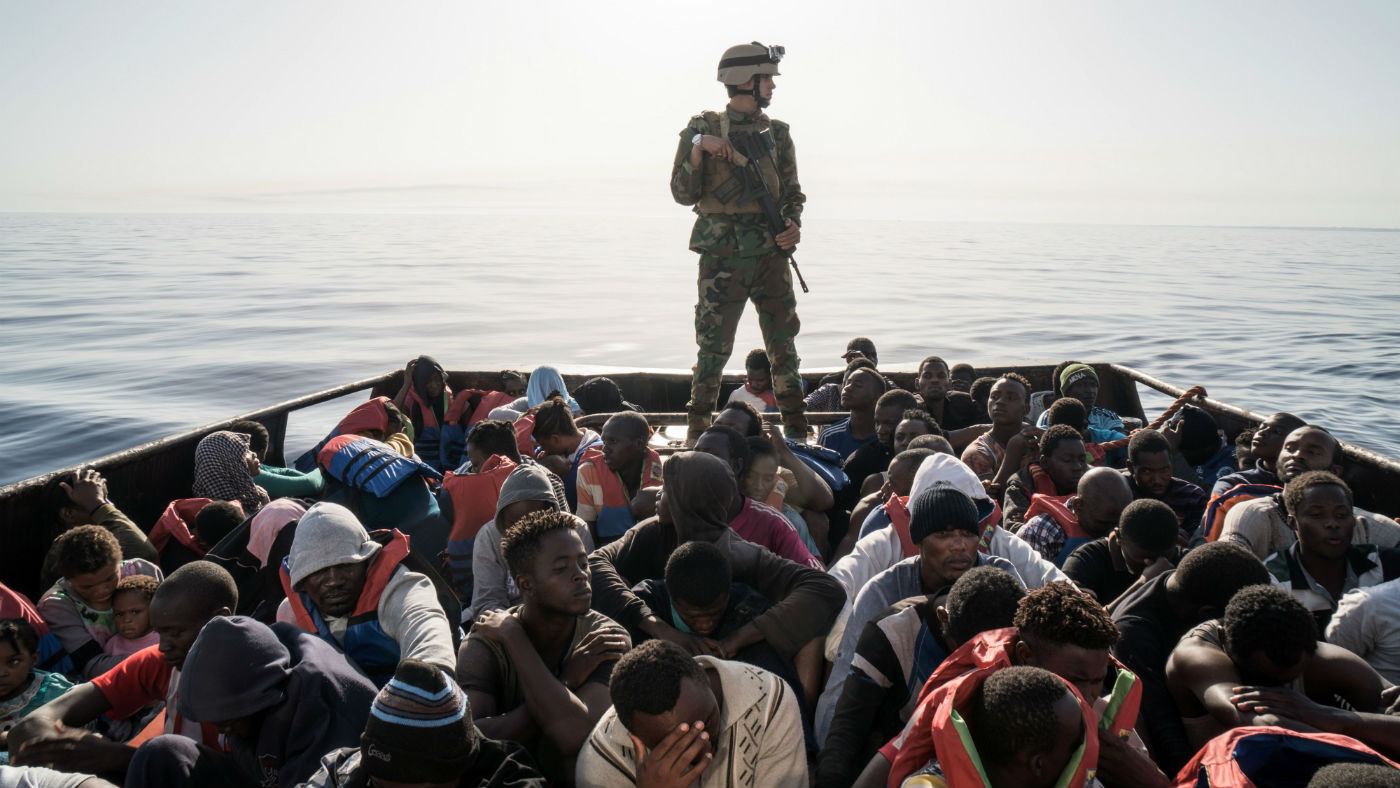Why the EU is accused of ‘crimes against humanity’
International Criminal Court indictment blames the bloc for deaths of thousands of migrants who drowned fleeing Libya

A free daily email with the biggest news stories of the day – and the best features from TheWeek.com
You are now subscribed
Your newsletter sign-up was successful
Human rights lawyers are urging the International Criminal Court (ICC) to prosecute the EU over the deaths of thousands of migrants who drowned in the Mediterranean after fleeing Libya.
An indictment submitted this week points the finger of blame at the bloc “and the member states that played a prominent role in the refugee crisis: Italy, Germany and France”, The Guardian reports.
The 243-page legal submission calls for the court to take action over the deterrence-based migration policy followed by the EU after 2014, which was allegedly “intended to sacrifice the lives of migrants in distress at sea, with the sole objective of dissuading others in similar situation from seeking safe haven in Europe”.
The Week
Escape your echo chamber. Get the facts behind the news, plus analysis from multiple perspectives.

Sign up for The Week's Free Newsletters
From our morning news briefing to a weekly Good News Newsletter, get the best of The Week delivered directly to your inbox.
From our morning news briefing to a weekly Good News Newsletter, get the best of The Week delivered directly to your inbox.
Although ICC prosecutors “are already gathering evidence about crimes against refugees in Libya, the document goes a step further by arguing that the EU and member states are also largely to blame for migrant deaths on land and at sea”, says German newspaper Deutsche Welle.
What’s the accusation?
The Guardian says the “stark” allegation is that officials and politicians knowingly created the “world’s deadliest migration route”, resulting in at least 12,000 people losing their lives.
The two main authors of the legal submission are Juan Branco, who has previously worked at both the ICC and at France’s Foreign Affairs Ministry, and Omer Shatz, an Israeli lawyer who teaches at Paris-based university Sciences Po.
A free daily email with the biggest news stories of the day – and the best features from TheWeek.com
The legal document cites public EU documents as well as statements made by the French president, the German chancellor and other top European officials.
The allegation of “crimes against humanity” draws partially on internal papers from Frontex, the EU organisation charged with protecting the EU’s external borders, which warned that moving from the successful Italian rescue policy of Mare Nostrum could result in a “higher number of fatalities”.
The decision in 2014 to end the Mare Nostrum rescue operation and replace it with an operation called Triton was heavily criticised at the time.
Mare Nostrum ships rescued 150,810 migrants in the Mediterranean in a single year, as hundreds of thousands crossed the sea. By contrast, Triton ships “didn’t patrol directly off the Libyan coast, the origin of most of the flimsy smuggling boats that were taking off for Europe”, says the Associated Press (AP).
“The objective of this new policy was to sacrifice the lives of many in order to impact the behavior of more,” according to the complaint. “It also failed. Crossings did not decrease as predicted, because the risk had little deterrent effect on those who have little to lose to begin with.”
And the reaction?
The ICC is a court of last resort “that handles cases of war crimes, crimes against humanity and genocide when other countries are unwilling or unable to prosecute”, reports AP. It is now up to the prosecutor to decide whether to investigate and ultimately bring a case.
The court “receives many similar requests every year for formal investigations into war crimes and crimes against humanity”, says the US news agency.
But “the more detailed the communication, the more likely the prosecutor will take it seriously,” according to Dov Jacobs, a defense lawyer at the ICC who is not connected to the request.
The team behind the submission say they believe the details in their report will force the court to take action.
“We leave it to the prosecutor, if he dares, if she dares, to go into the structures of power and to investigate at the heart of Brussels, of Paris, of Berlin and Rome, and to see by searching in the archives of the meetings of the negotiations who was really behind the scenes trying to push for these policies that triggered the death of more than 14,000 people,” said Branco.
He added: “[European officials] pretended that this was a tragedy that nothing could be done against it that they had no role in it. And we demonstrate very carefully that, on the contrary, they triggered this so-called tragedy.”
European Commission migration spokesperson Natasha Bertaud declined to comment directly on the court filing but blamed people smugglers for deaths at sea.
“The EU’s track record on saving lives in the Mediterranean speaks for itself, saving lives has been our top priority and we have been working relentlessly to this end,” Bertaud said.